The new supper clubs for migrants
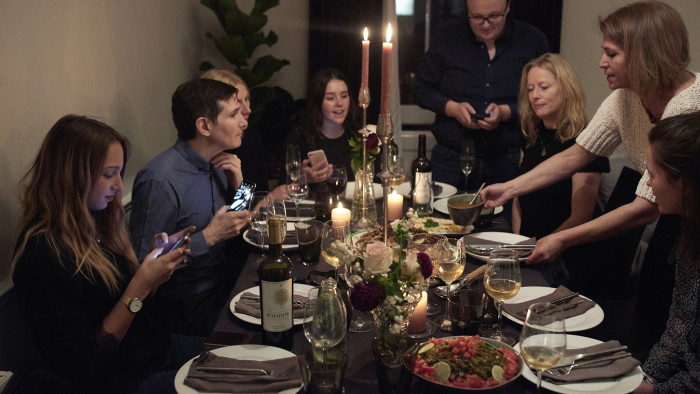
Simply sign up to the Life & Arts myFT Digest -- delivered directly to your inbox.
In a sleek white kitchen in the heart of London, guests are arriving with bottles, kisses and apologies about the various ways in which work has kept them late.
Amid them, a woman is chopping herbs and chatting to her host. An Arabic ringtone interrupts. “It’s my sons,” she explains. “I had to leave them in Syria. They are just teenagers and it breaks my heart, so I speak to them many times every day.”
In January last year, Majeda was faced with a dilemma worthy of any parent’s nightmares. Repeated detentions, connected to her work as a campaigner for women’s rights, left her fearful for her family’s safety if she remained in Damascus, while uncertainty about the conditions she would find in Lebanon made her too afraid to take her children with her.
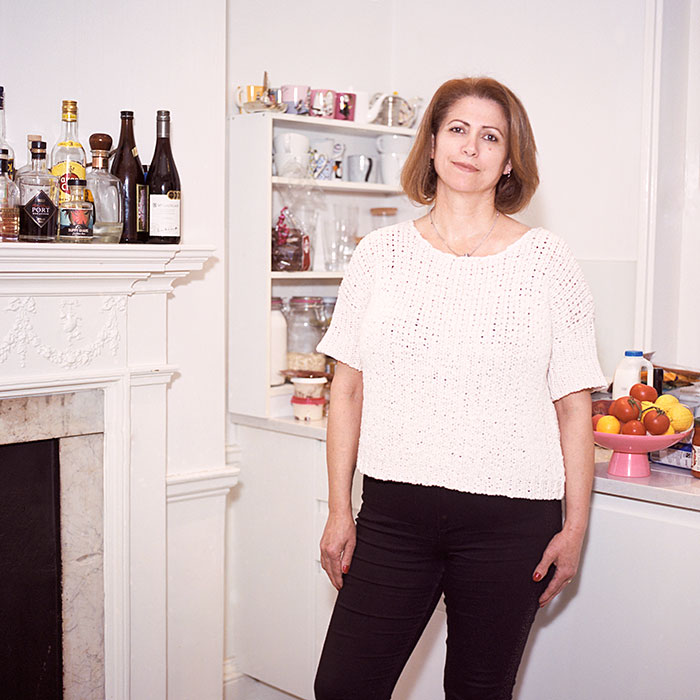
Majeda arrived in London, alone, just three months ago. However, she is already part of a growing, grassroots movement across the developed world. Its aim is to build bridges between displaced Syrians and the communities in which they arrive by transforming asylum seekers into chefs.
“We were looking at ways of supporting the integration of migrants,” says Jess Thompson, who has organised the cookery class that Majeda will teach tonight. “And I kept meeting women who said, ‘I don’t have a skill to share in this country. All I can do is cook.’”
So she and Giuliana Mazza-Coates started Migrateful. The social enterprise trains refugees before setting them up with small groups keen to learn how to cook their nation’s traditional dishes.
Guests each pay between £25 and £35 to attend a class in someone’s home, then to sit around the table with their teacher to eat and talk.
While Majeda travelled to the UK legally, she cannot earn money until her refugee status, and consequent right to remain, are finalised. Each time she teaches, however, she is given a travel card and a bag of foodstuffs.
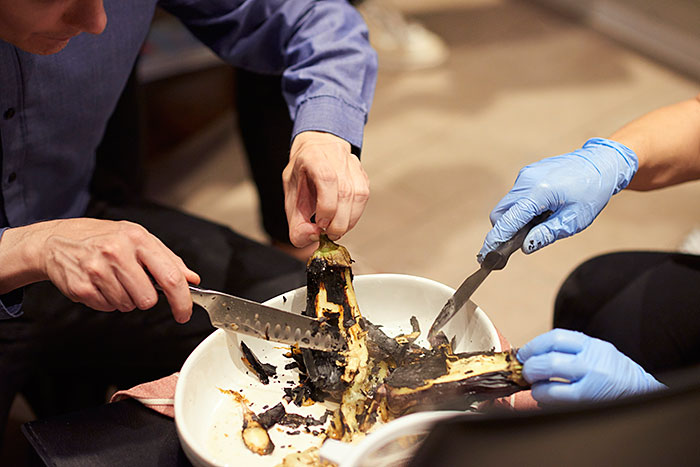
She also gets a chance to practise her English — and to do something she loves. “When I feel depressed, I have to be in the kitchen,” says Majeda, as she marshals her students into a culinary production line, tutoring some in the best way to char an aubergine, others in the uses of pomegranate molasses. “I want to go home and rebuild Syria as soon as possible. But while I’m here, food is one of the best ways I can help my country, to remind people of Syria’s great culture.”
Across the world, the act of “breaking bread together” symbolises the making of bonds and friendships. But does food really have magic powers to bring together people with such different backgrounds and experiences?
Earlier this year, researchers at the University of Chicago published a study probing this very question. In a series of experiments, strangers were paired up and given opposing roles — say, a union leader and a manager in a theoretical strike negotiation. Ayelet Fishbach, professor of behavioural science, and her colleagues measured the degree to which people’s trust in, and collaboration with, one another changed when they were given the same food to eat.
After sharing sweets (Butterfingers, Sour Patch, Peppermint Patties and Airheads, to be precise) the strangers were more generous with their money and twice as fast to resolve disputes. Fishbach also tried giving the participants similar clothes, to test whether that communality would also build trust. But no, she tells me over email, the power of food was far greater.
Four days after meeting Majeda, I travel to the outskirts of Leeds, in northern England. It is Friday night in Horsforth. The sun breaks through a dense grey sky, sending low beams past terraced houses in sombre Yorkshire stone, bustling beauticians, a few stately pubs and, finally, the spire of St Margaret’s Church and the hills beyond.
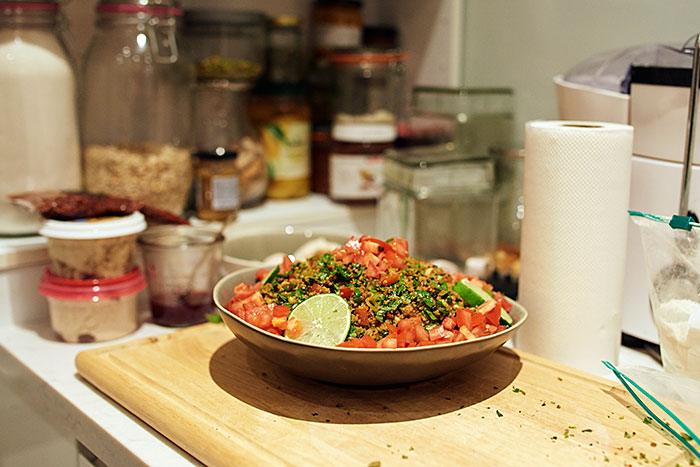
Through the church doors, a male voice can be heard singing softly in Arabic. Inside a small kitchen, four Syrian men crouch around a mountainous pile of yellow rice. The air is heavy with the scent of cumin.
“My father taught me how to cook,” says 19-year-old Maher. “We ran a big restaurant in Syria and then, when we had to leave, in Lebanon. He would like to be a cook here in England but . . . right now, he cannot find work.”
His 16-year-old brother Omar and their father, Khaled, smile. They fled their hometown of Homs in 2011, when it came under siege from government forces, and were resettled in the UK last year. Tonight, using donated food, they will cook for anyone — from Horsforth to Homs — who wants to come, chat and eat a free supper.
Horsforth, explains Rose McCarthy, one of the organisers of this evening’s event, is “a white, middle-class neighbourhood”. She now works for the Refugee Council in Leeds but has lived in Horsforth for 25 years.
Like her fellow organisers, she has worked long unpaid hours on this event. “There was a time when I, too, didn’t really understand what ‘refugee’ or ‘asylum seeker’ meant,” she explains. “I want to show people how lucky we are to have some of these skilled people resettled here.”
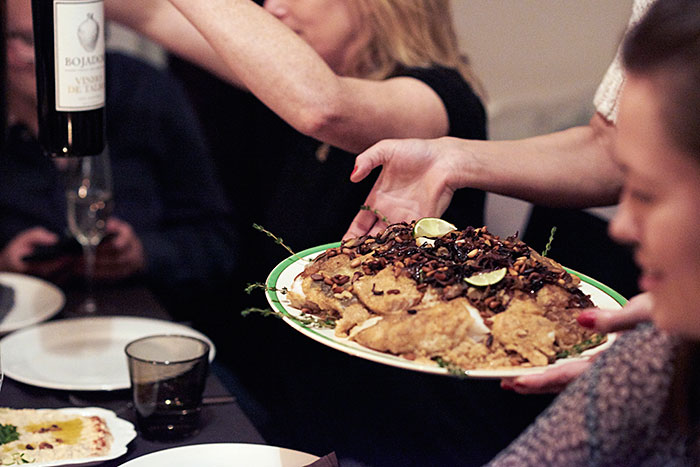
At 6.30pm the doors open. Among the first to arrive is Joumana, heavily pregnant and accompanied by her husband and toddling son. Originally from Daraa, Syria, they now live in Leeds. “This falafel is . . . ” she closes her eyes and smiles. “It is perfect. When you buy it in England it doesn’t taste the same.”
The hall fills up. Old ladies from the church congregation eat falafel and scoop hummus to a backing track of Syrian pop music. The vicar, in dog collar, joins a table of headscarved women. Babies squeal, a little boy dressed in a muscle-man superhero outfit slaloms past a pensioner with a purple rinse who chats to a young man in a tracksuit, saying, “The food all looks really fresh and healthy.”
Soon, no table space remains and people carry plates of food into the church, where there are exhibitions and stalls from local charities and the Red Cross.
McCarthy is cornered by a young Syrian boy called Ahmed. “I’m 12, nearly 13,” he says. “I just wanted to say thank you. I was feeling sad when I left school today, now I’m feeling so happy.”
“Why?” she asks. “What does this evening mean to you?” He pauses to think and his eyes gloss with the beginnings of tears. “Community,” he answers.
The sociologist Alice P Julier has written an entire book about the many ways in which sharing food can symbolise and foster fellowship: Eating Together, Food, Friendship and Inequality. But can a cooking class or supper club with a refugee reach beyond the symbolic to help create genuine integration?
“There are two key challenges,” she says. “The first is the possibility of these supper clubs turning into a spectacle — culinary exoticism, if you will. The second, and biggest, is the fact that each is a ‘one-shot’ experience. How lasting will their effect be?”
In the US state of New Jersey, Kate McCaffrey and Melina Macall have carefully weighed this issue. Their fledgling not-for-profit, The United Tastes of America, started with “a desire to change the narrative about the global refugee crisis, as we witnessed a rise in xenophobia”, explains McCaffrey, an anthropology professor at Montclair State University, when we speak on the phone.
In response, last year they launched what she describes as “a series of dinner parties. A US host will offer space in their home, a Syrian cook will bring the food and an interpreter will come along to make sure everyone can sit around the table together to talk and eat.”
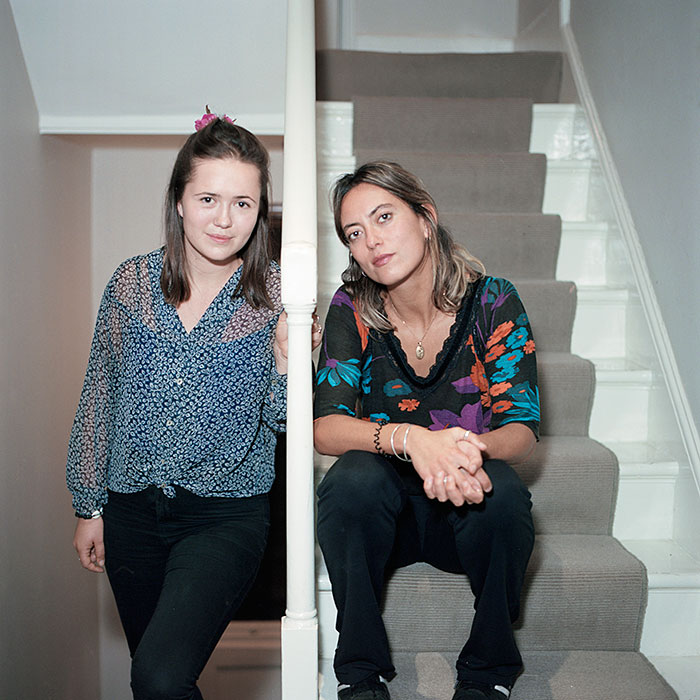
More than 220 such parties have now been held in New Jersey and the pair have about 45 cooks on their books. But, says Macall, a food consultant and activist, “Food’s just the beginning. It’s a great conversation starter where, in other circumstances, conversation would be almost impossible and certainly awkward.”
“We find lots of Americans are desperate for a space in which they can say, ‘The unwelcoming voice you hear through the media is not mine,’ ” adds Macall. The encounters also help to “redefine people’s vision of what Syria is. It’s more than the shell-ridden, godawful war zone you see on TV.”
They might alter people’s perception of refugees too. “If you really want to help someone,” McCaffrey says, “you need to start by listening to them and learning what they really need, as defined by them.”
In Germany, a project called Give Something Back to Berlin has been running “Open Kitchen” sessions since 2013, designed to bring refugees and locals together to cook, eat and converse.
“It started when I went down to a makeshift camp that refugees had erected in Kreuzberg,” explains founder Annamaria Olsson. She asked the refugee protesters what they wanted most. Computers and internet access, they told her. Then help learning English and German. But third and fourth on the list, surprisingly, were facilities in which to cook properly and the opportunity to play music.
“In many cultures,” says Olsson, “the act of cooking for people, even if you have very little, is an essential part of hospitality. Taking that away can be very traumatic for people.”
Give Something Back to Berlin began raising money from private donors in order to hold cooking sessions, first in the camp itself and later in a co-working space in nearby Oranienplatz. Migrants design the menu for the session, which both refugees and Berliners can attend for free. By 2015, the year in which more than a million migrants and refugees crossed into Europe, about 100 people were turning up.
The migrants among them often ached to cook. “People had been trudging by foot for months,” she says. “They hadn’t had access to proper cooking facilities for ages. Here, they could create a little bit of home through food.”
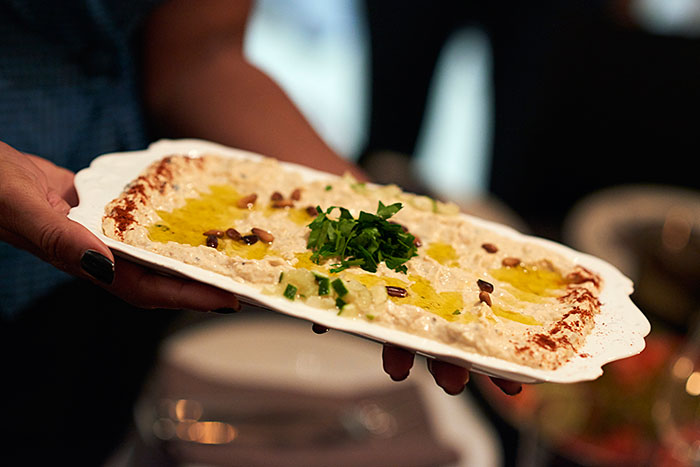
It also gave them a unique opportunity to build a new home in Berlin, Olsson believes. Her organisation stages music and arts projects as well, but “it’s while participating in the cooking programme that migrants seem to meet the person who becomes their first landlord or boss. They start becoming part of the fabric of society.”
Food, she suggests, is a medium through which you can get to know both a person and their culture. “I am still surprised at what a powerful effect the sessions have on Berliners,” she explains. “People say, ‘I can’t believe that woman is so powerful, but she’s wearing a headscarf!’ Or a cook will transport us to Syria by explaining that a particular herb smells of Damascus in the spring. There’s a lot of poetry and love in the act of cooking and eating together.”
Krishnendu Ray is associate professor of food studies at New York University. An immigrant himself, he has written about food and cultural heritage in his book The Migrant’s Table: Meals and Memories in Bengali-American Households. “Food is a really useful tool through which to engage in cultural dialogue,” he tells me, “because it engages all your senses, including the intimate ones: touch, taste, sight, hearing and smell.
“It’s also trivial — we do it three times a day. So we can be adventurous with what we eat, while crossing cultural boundaries in other areas — where you live, perhaps, or who you marry — may feel like violations of your cultural integrity.”
He has taken cooking classes with League of Kitchens, a New York social enterprise through which immigrants teach in their own homes. “I find it really productive,” he says. “Sure, it could be great to bond through making Syrian music together, but how many of us have the skills? Cooking is still relatively ubiquitous. The majority of people feel confident enough to follow basic instructions.”
That said, he has concerns about the rise of refugee cooking clubs. “It reminds me, a bit, of slum tourism,” he says. “You set out to share culture and create a sense of community, but you have to be careful it doesn’t turn into a mere display of that culture for the pleasure of the paying guests.”
“I can understand his worries,” says Migrateful’s Giuliana Mazza-Coates. “But our classes are not like a favela tour, where you’re gawping at the awful slum conditions other people live in. You’re interacting in a nice kitchen, all peeling potatoes together, then eating together. In fact, the cooks are teachers, and that immediately carries authority and commands respect. People come to learn a skill from someone who’s an expert but happens to be a refugee too. The cooks aren’t expected to trot out the heart-rending details of their personal experiences.”
Back in London, an awed silence descends as Majeda carries out a fragrant platter of sayadieh — fish with spiced rice and caramelised onions. Phones are whipped out as everyone snaps photos of the table. “What do you say in Syria to start a meal?” asks a guest. “Like bon appétit?”
Majeda smiles. “We say ‘taffadal,’ ” she says. “But it is not the same as bon appétit. It is not so much about the food but the company. It means ‘come and join us.’ ”
Follow @FTMag on Twitter to find out about our latest stories first. Subscribe to FT Life on YouTube for the latest FT Weekend videos. Sign-up for our Weekend Email here
Photographs: Gabby Laurent
Letter in response to this article:
Do your friends care what you’re just about to eat? / From Christopher D Forrest, Plymouth, Devon, UK
Comments